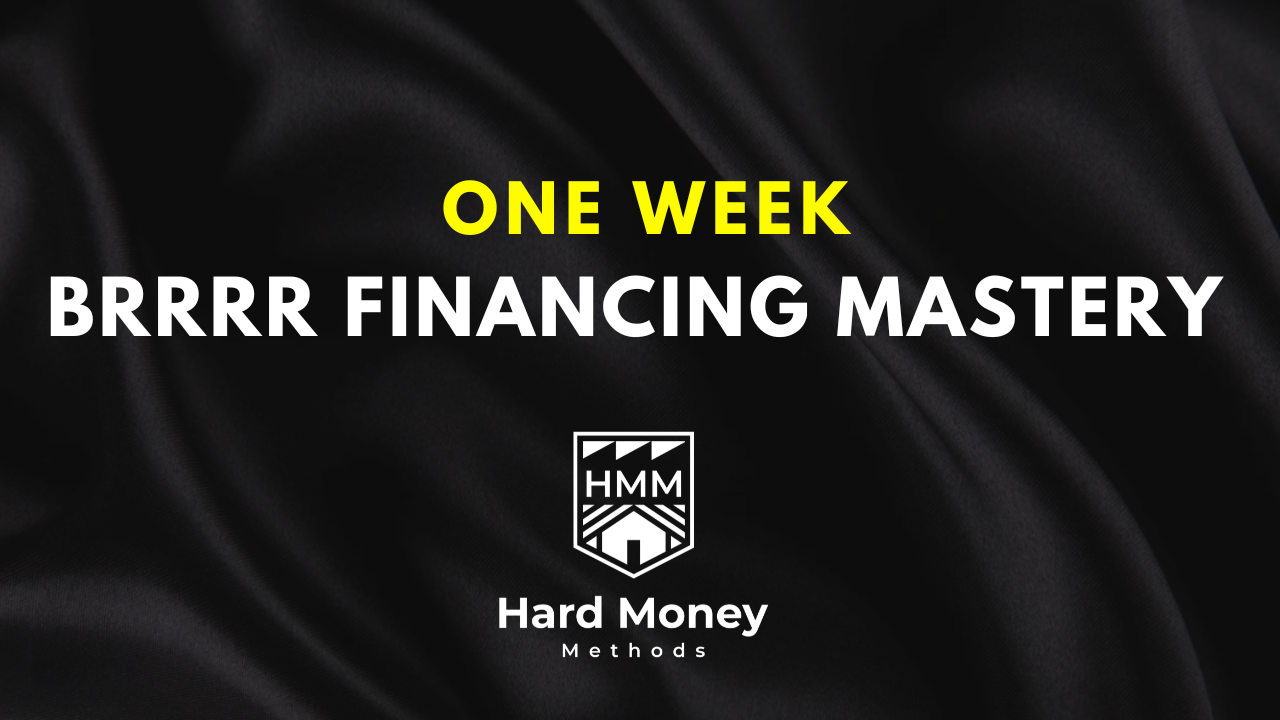What Is a Hard Money Lender? A Simple Guide for Real Estate Investors
Sep 10, 2025
If you're interested in real estate investing, you've probably heard the term hard money lender tossed around. These lenders are a go-to resource for flippers, BRRRR investors, and those working with distressed properties. But what exactly do they do, and how do they differ from traditional banks?
This guide will explain what a hard money lender is, how these loans work, and when it makes sense to use one as an investor.
What Exactly Is a Hard Money Lender?
A hard money lender is a private individual or company that offers short-term real estate loans backed by the value of the property, not your credit score or income. These loans are based on the asset - the property itself - not your personal financials.
Because they focus on the deal, not the borrower, hard money lenders can move quickly. Investors often use them to close on properties fast, fund rehab projects, or finance deals that traditional lenders won’t touch.
How Does a Hard Money Loan Work?
Hard money loans are secured by the real estate asset and are often based on after-repair value (ARV) or loan-to-cost (LTC). That makes them ideal for properties that need work.
Here’s how they typically work:
-
Short-term loan, usually 6 to 18 months
-
Interest-only payments until payoff
-
Higher interest rates than conventional loans
-
Quick closing, often in a matter of days
You get the money fast, fix up the property, and then either sell it or refinance into a long-term mortgage.
Key Differences: Hard Money vs. Traditional Financing
Traditional mortgages require income verification, credit checks, and a lengthy underwriting process. In contrast, hard money lenders care more about the property and your plan to improve it.
| Feature | Hard Money Loan | Traditional Mortgage |
|---|---|---|
| Approval Criteria | Based on property value | Based on income & credit |
| Time to Close | Days | Weeks to months |
| Term Length | 6–18 months | 15–30 years |
| Use Case | Flips, BRRRR, bridge | Buy-and-hold rentals |
Hard money offers flexibility when speed and unconventional properties are involved.
When Should Real Estate Investors Use Hard Money?
Hard money isn’t for every deal, but it’s the right approach for "purchase and rehab" REI transactions:
-
Fix-and-flip properties that need fast closing and renovation funding
-
BRRRR method deals, especially during the buy and rehab stages
It’s all about short-term flexibility that allows you to act fast and add value.
Pros and Cons of Hard Money Lending
Like any financing tool, hard money has its advantages and disadvantages.
Pros:
-
Fast funding for time-sensitive deals
-
Flexible underwriting based on the property
-
Ideal for distressed or undervalued properties
Cons:
-
Higher interest rates and fees
-
Shorter repayment windows
-
Potential for higher risk if the deal goes bad
Understanding both sides helps you use hard money wisely and profitably.
What Do Hard Money Lenders Look For?
Instead of credit scores or employment history, hard money lenders focus on:
-
Loan-to-Value (LTV) or Loan-to-Cost (LTC)
-
After-Repair Value (ARV)
-
Exit strategy (sale or refinance)
-
Borrower’s experience with similar projects
-
Local market conditions
They want to see that the property supports the loan and that you know what you're doing.
Common Terms and Fees to Expect
Hard money loans come with different terms than traditional financing. Here’s what you should expect:
-
Interest rate: 9–15% (interest-only payments)
-
Points: 1–4% upfront
-
Loan term: 6–18 months
-
Closing costs: Similar to traditional deals, but sometimes higher
-
Prepayment penalties: Occasionally applied, but best avoided (the objective is to finish the rehab as fast as possible and exit the loan without a penalty)
Always factor these into your deal analysis before accepting funds.
How to Choose a Reputable Hard Money Lender
The right lender can make or break your deal. Here's what to look for:
-
Experience with real estate investors
-
Clear and transparent fee structure
-
Fast communication and responsiveness
-
Positive reviews or investor referrals
-
Willingness to explain terms clearly
Interview multiple lenders and don’t hesitate to ask questions. A good lender will feel like a partner, not a predator.
Final Thoughts: Is Hard Money Right for You?
Hard money loans are a powerful financing tool - especially when traditional banks say “no” or you need to act fast. If you’re flipping houses, following the BRRRR method, or buying distressed assets, this type of financing can help you close quickly and scale your portfolio.
But success depends on smart deal analysis, a solid exit plan, and finding the right lender. When used wisely, hard money lending can open doors to deals you might otherwise miss - and help you build real estate wealth faster.
Ready to get started with your REI education? Check out our affordable, step-by-step real estate investing course designed to help beginners close their first deal with confidence.



